New College Library holds collections of and about a number of individuals who gathered material and wrote extensively on Judaism and Jewish Studies, motivated by their interest in the conversion of Jews to Christianity. Two significant figures in this area of interest are John ‘Rabbi’ Duncan and Adolph Saphir.
Duncan was a colourful, intelligent and, at times, tortured soul, one particularly gifted in the study of languages and in missionary work. Born in 1796, he obtained an MA from the University of Aberdeen in 1814. When he began his study of theology, he was still an atheist and did not convert to Christianity until 1826. Even thereafter, he had times of doubt before settling into firm belief.
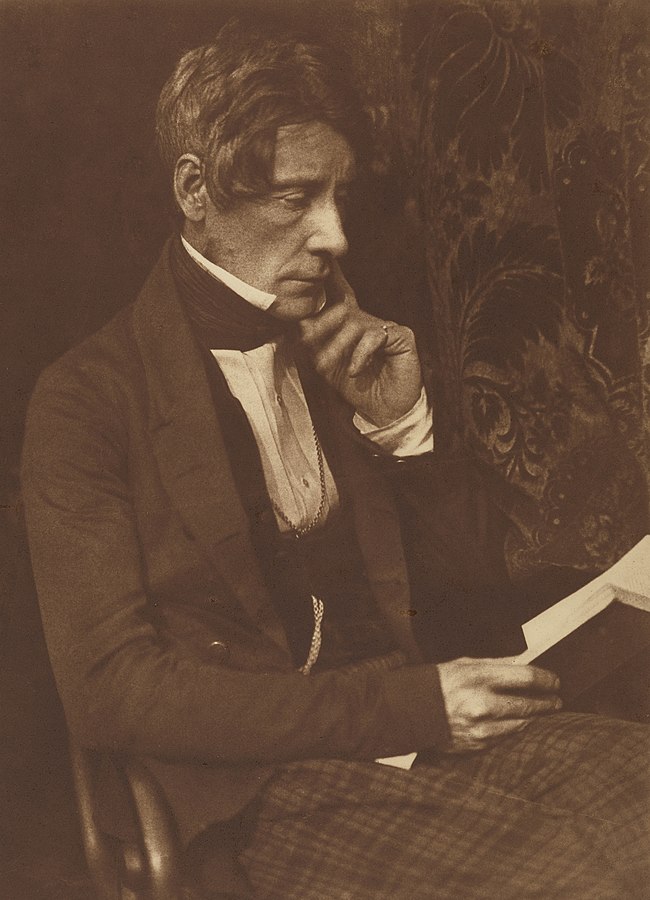
John ‘Rabbi’ Duncan – portrait by Hill & Adamson
In 1840, having spent some years as an ordained minister, Duncan’s interest in Hebrew and his growing interest in the church’s work concerning the conversion of the Jews to Christianity led to his appointment as the Church of Scotland’s first missionary to the Jews. Stationed in Budapest from 1841-43, Duncan was remarkably successful in his work there converting, among others, the young Adolph Saphir and his family to the Christian faith.
But in 1843, following The Disruption, Duncan’s calling took him back to Edinburgh where he held the chair of Hebrew and Oriental Languages at the newly-founded New College, remaining in post there until his death in 1870.
Until recently, Duncan’s collection was not easily accessible but it can now be searched for online. Resources by, about or owned by Duncan can be found in DiscoverEd and also via this resource list compiled by Academic Support Librarian, Christine Love-Rodgers.
In 1843, one of Duncan’s converts, 13-year-old Adolph Saphir, came with him to Edinburgh from Budapest, his father being keen that the young Adolph improve his English and train as a minister of the Free Church. This process took some time and saw Saphir travel to Berlin, Glasgow and Aberdeen, becoming a student of theology at the Free Church College, Edinburgh in 1851. In 1854, Saphir, himself a Jewish convert, was appointed a missionary to the Jews. Saphir’s mission took him first to Hamburg and then, in 1856, to South Shields. Five years later, he moved to London where he remained until his death in 1891.
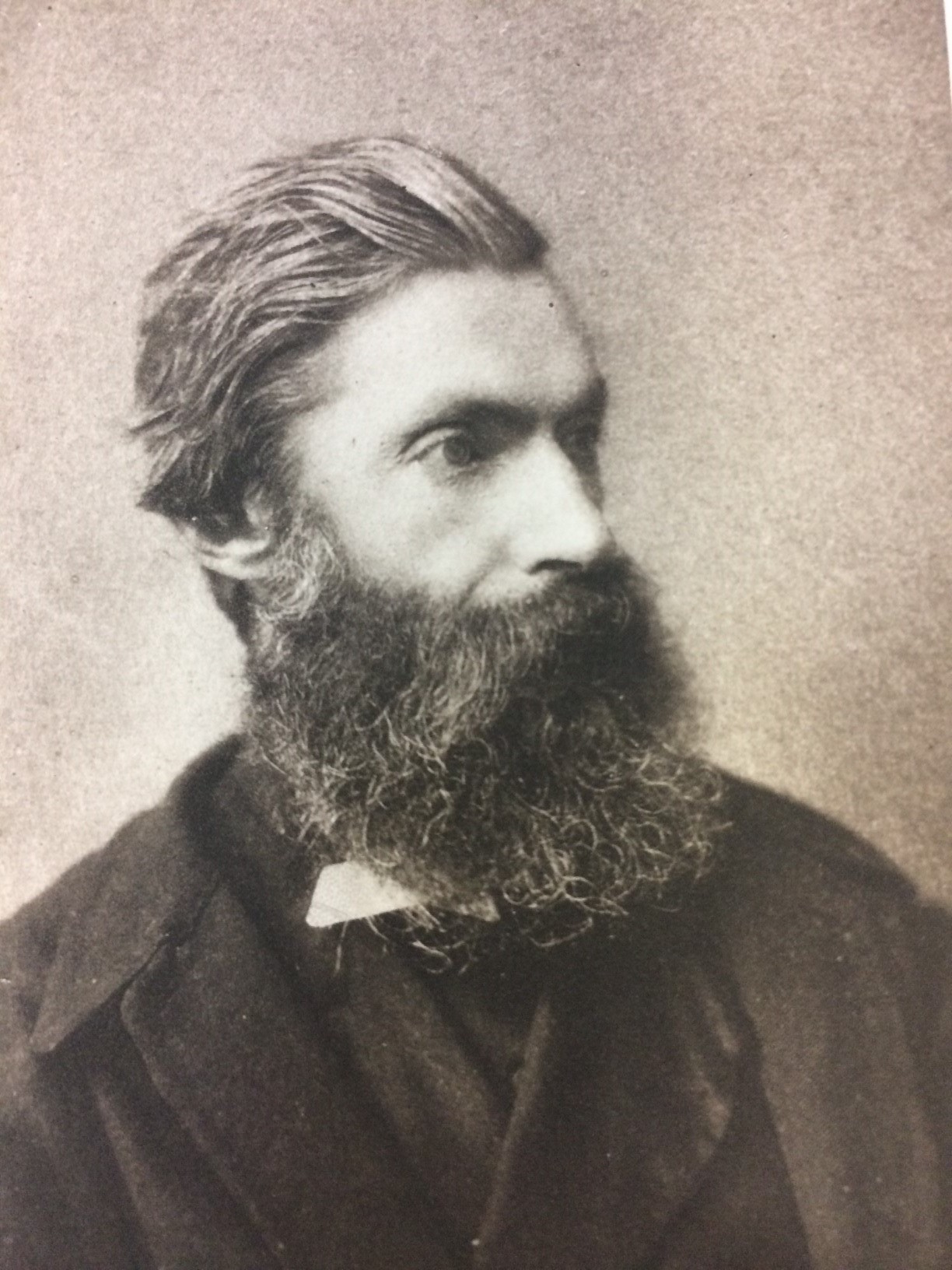
Adolph Saphir – photograph by T. Roger, Swan Electric Engraving Co.
Despite Duncan’s inner battles of the spirit and his lack of prowess as a formal teacher, his personal piety, linguistic and informal teaching abilities, as well as his success as a missionary, were impressive. Saphir and he contributed significantly to the collection of items in New College Library, particularly with reference to the Christian mission to the Jews during the 19th century. Their legacy is to the ongoing benefit of scholars of Judaism and Jewish Studies.
A small exhibition of some of our Duncan and Saphir material will run from 26th February-31st March 2019 in New College Library.
Bibliography
http://www.clan-duncan.co.uk/john-rabbi-duncan.html
https://en.wikipedia.org/wiki/John_Duncan_(theologian)
https://en.wikipedia.org/wiki/Adolph_Saphir
https://archive.org/stream/rschsv028p1barr/rschsv028p1barr_djvu.txt
Mighty in the Scriptures: a memoir of Adolph Saphir, D.D./by Gavin Carlyle. J.F. Shaw and Co.; 1893.
Gina Headden, IS Helpdesk Assistant, New College Library and Christine Love-Rodgers, Academic Support Librarian, School of Divinity, New College.
With many thanks to Jessica Wilkinson from the School of Divinity who contributed so much to identifying and listing the relevant New College Library collections.
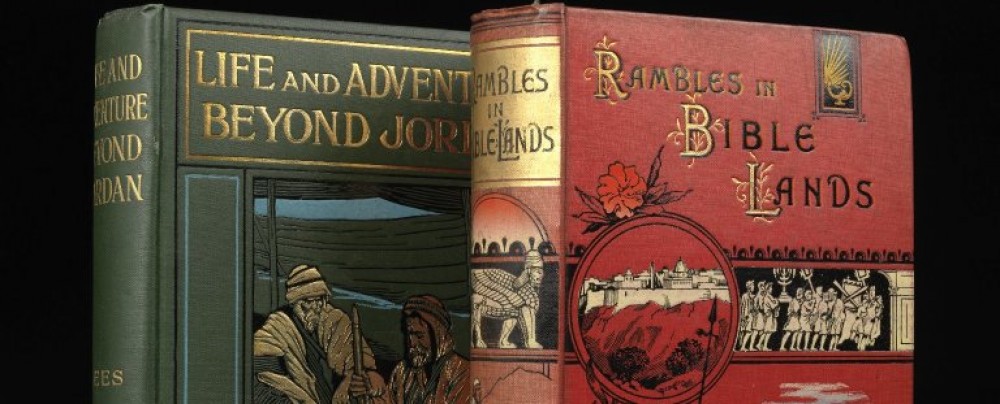

 Flavius Josephus Online is the first comprehensive literary-historical online commentary on the works of Flavius Josephus in English including the Greek text by Niese from the late 19th century. About 65% of the project is complete, consisting of Life, and Against Apion, book 2 of the Judean War, and books 1-11 and 15 of the Judean Antiquities.
Flavius Josephus Online is the first comprehensive literary-historical online commentary on the works of Flavius Josephus in English including the Greek text by Niese from the late 19th century. About 65% of the project is complete, consisting of Life, and Against Apion, book 2 of the Judean War, and books 1-11 and 15 of the Judean Antiquities. The Littman E-Library of Jewish Civilisation has over 30,000 pages of leading research in Jewish studies from Arthur Szyk: Artist, Jew, Pole to The Zohar: Reception and Impact. The LEJC includes international perspectives on Jewish civilization from scholars across the world, including the USA, Israel, Germany, Poland, and the UK.
The Littman E-Library of Jewish Civilisation has over 30,000 pages of leading research in Jewish studies from Arthur Szyk: Artist, Jew, Pole to The Zohar: Reception and Impact. The LEJC includes international perspectives on Jewish civilization from scholars across the world, including the USA, Israel, Germany, Poland, and the UK. The Textual History of the Bible Online (THBO) is unique in providing, for the first time, a cross-searchable platform with all available information regarding the textual history, textual character, translation techniques, manuscripts, and the importance of each textual witness for each book of the Hebrew Bible, including its deutero-canonical scriptures. In addition, it includes articles on the history of research, the editorial histories of the Hebrew Bible, as well as other aspects of text-critical research and its auxiliary fields, such as papyrology, codicology, and linguistics.
The Textual History of the Bible Online (THBO) is unique in providing, for the first time, a cross-searchable platform with all available information regarding the textual history, textual character, translation techniques, manuscripts, and the importance of each textual witness for each book of the Hebrew Bible, including its deutero-canonical scriptures. In addition, it includes articles on the history of research, the editorial histories of the Hebrew Bible, as well as other aspects of text-critical research and its auxiliary fields, such as papyrology, codicology, and linguistics. At New College Library, we welcome people working in the church to use our outstanding theological collections for research and continuing professional development.
At New College Library, we welcome people working in the church to use our outstanding theological collections for research and continuing professional development. 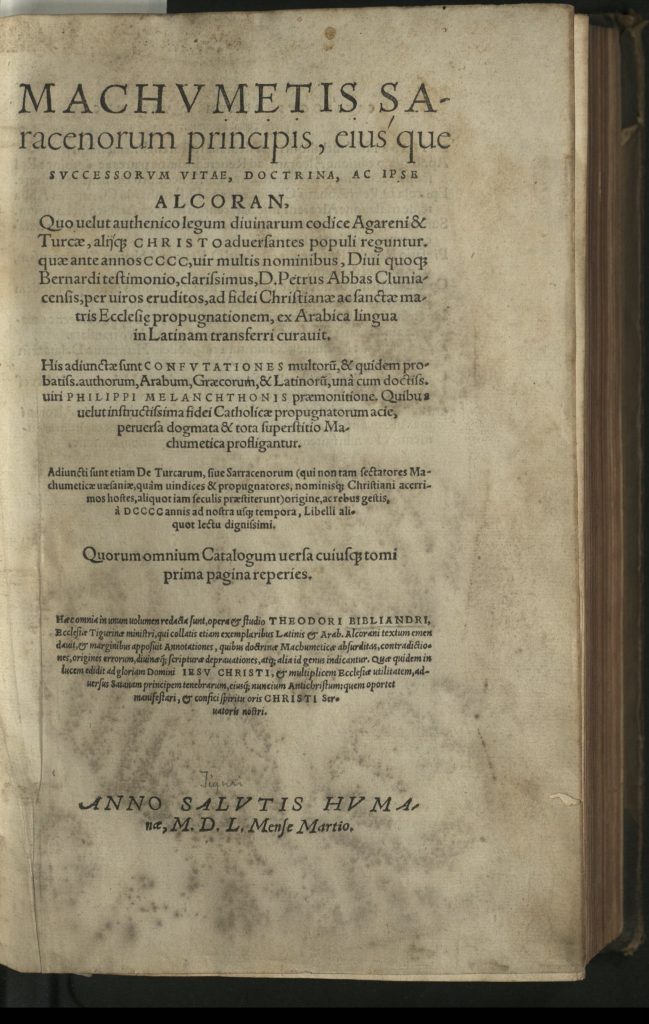
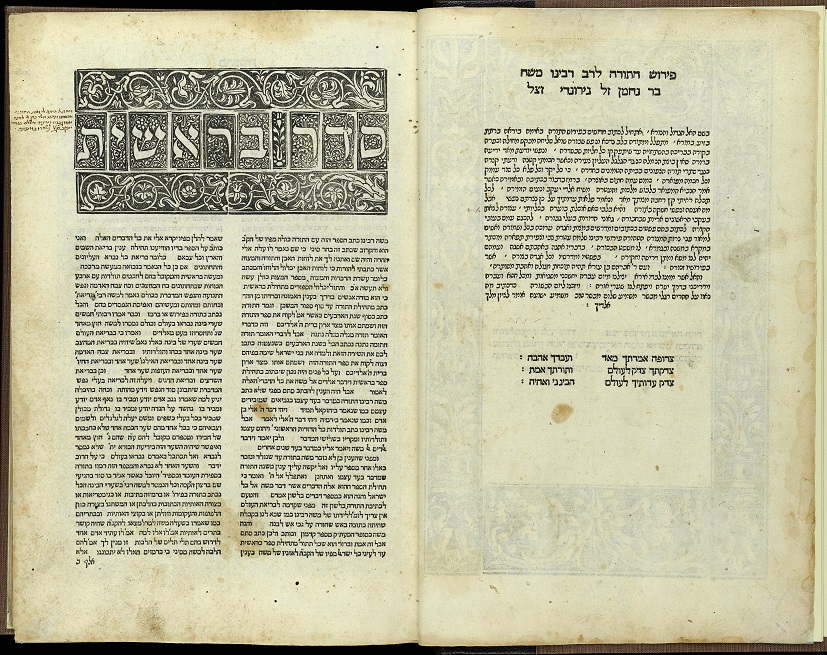
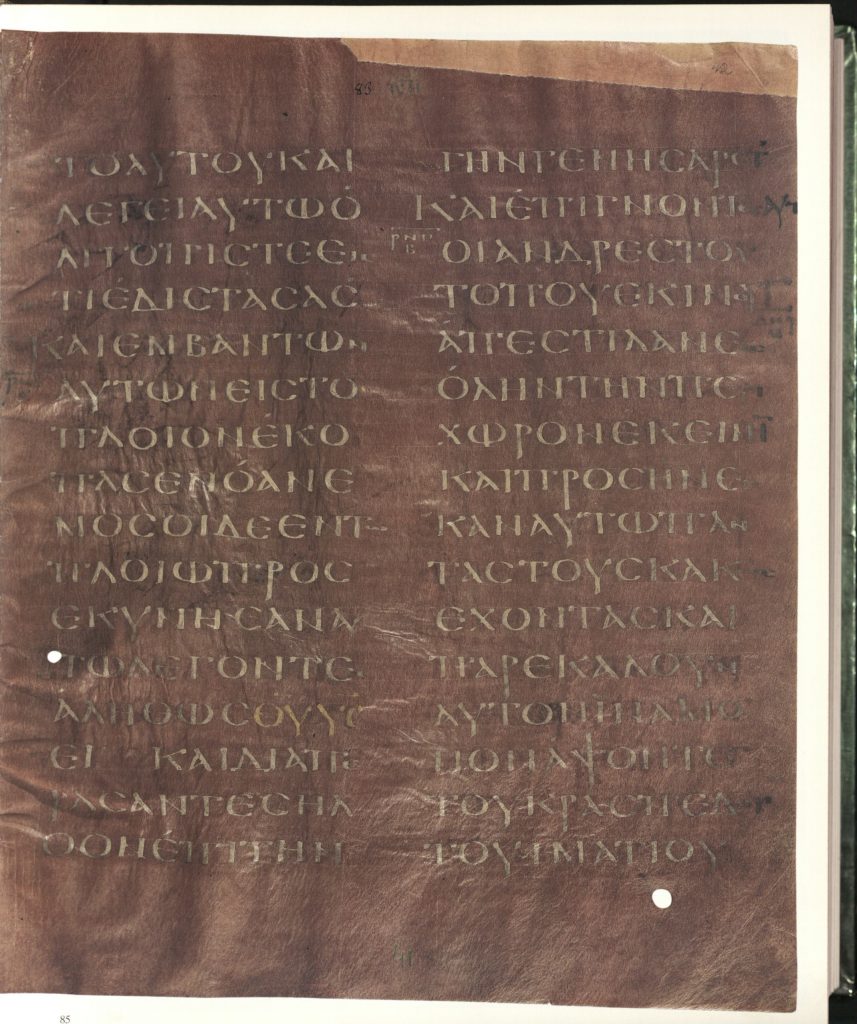
 These four letters are abbreviations for the words “God” and “Son” in the text: αληθως θ(εο)υ υ(ιο)ς ει (“Truly, you are the Son of God”).
These four letters are abbreviations for the words “God” and “Son” in the text: αληθως θ(εο)υ υ(ιο)ς ει (“Truly, you are the Son of God”).
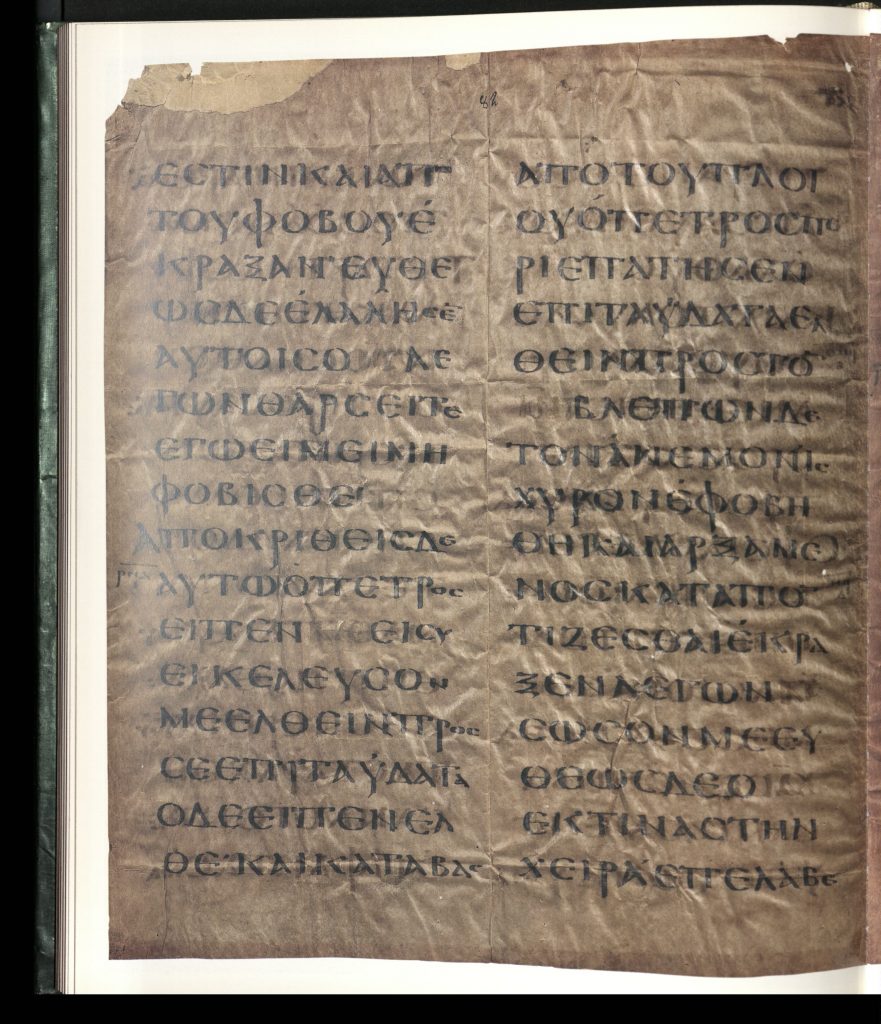
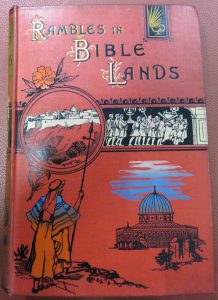
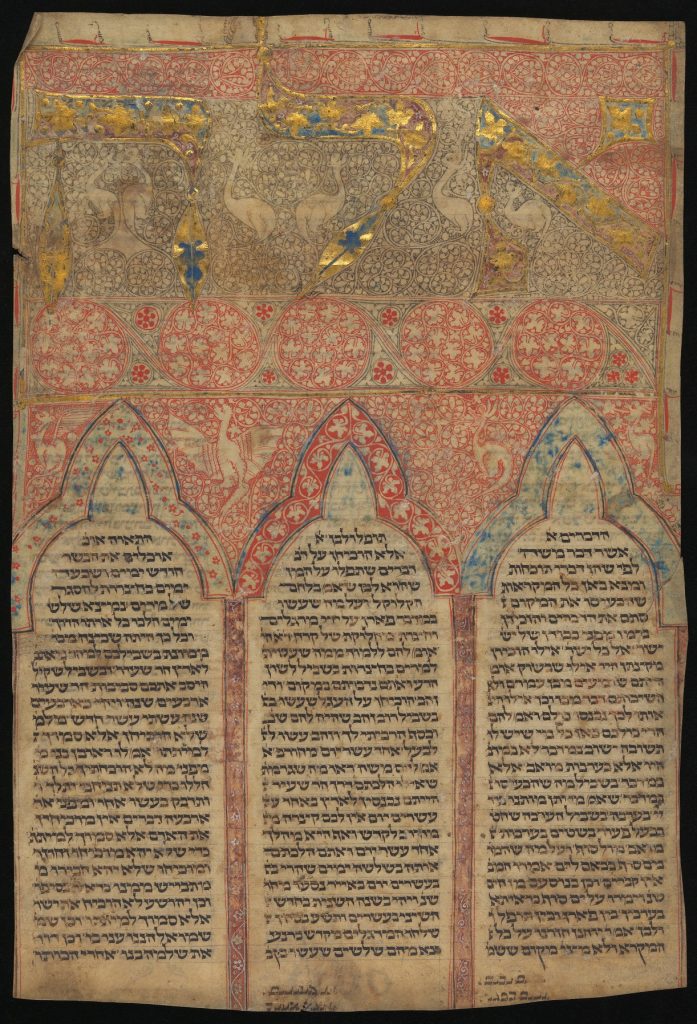
![[SCM]actwin,0,0,0,0;Bloomsbury Collections - Available Collections - Google Chrome chrome 05/08/2015 , 15:27:26](http://libraryblogs.is.ed.ac.uk/spslibrarian/files/2015/08/Bloomsbury_ebooks.jpg)


